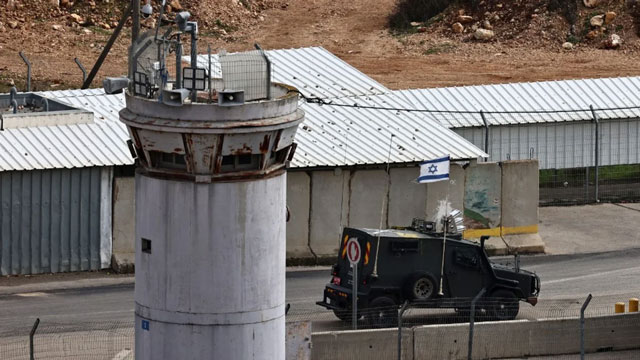Daijiworld Media Network - Gaza
Gaza, Nov 15: Shocking testimonies have emerged from three Palestinian minors who were allegedly tortured, starved, and abused inside Israel’s infamous Sde Teiman detention facility, painting a grim picture of the treatment of detainees amid the ongoing conflict.
Jabal (16), 17-year-old Mahmoud Hani Mohammad al-Majayda, and another teenager identified as Zoghbi, described being abducted near aid distribution points in Gaza before being forcibly transferred to the detention camp. Their accounts, documented by Defence for Children International – Palestine (DCIP), reveal severe physical and psychological trauma inflicted during interrogation and imprisonment.

Jabal, who was detained along with his father on September 11 near the Morag Corridor, recalled being beaten so brutally during questioning that his forehead split open and required stitches. He said he endured hours without food, water, or access to a toilet, often losing control of his bladder due to fear. He was later taken to what detainees refer to as the “disco room,” a concrete chamber where loud Hebrew music was blasted for more than 12 hours as soldiers beat him intermittently.
He recounted that a soldier playing a game on his phone would beat him every time he lost. On another occasion, Jabal said a prison officer showed him a manipulated photo of his mother lying beside an Israeli soldier, falsely claiming she and his sisters had been raped and murdered. When he reacted in distress, he was hung by handcuffs a meter off the ground and beaten repeatedly. Since his release, he suffers severe physical weakness, nightmares, and frequent loss of bladder control.
Majayda, who was abducted on August 7 in Rafah, said he was blindfolded, electrocuted, and beaten throughout his interrogation. Marked with an “X” on his back, he was placed in the “disco room” before being stripped and blasted with cold air for two days. He was held in solitary confinement with tightly bound hands and feet, unable to sleep due to pain and fear, and often wetting himself out of terror. His cell was infested with mosquitoes and flies, worsening his untreated skin infections.
He further alleged that an intelligence officer attempted to recruit him as a human shield in exchange for a monthly salary of 30,000 shekels (USD 9,200). When he refused, he was returned to the torture chamber and beaten again. He said he attempted suicide twice inside the prison and continues to suffer insomnia, haunted by recurring images of the cell and his torturers. “Prison has stripped away my childhood,” he told DCIP.
The third boy, 17-year-old Zoghbi, was seized on July 11 in Rafah. During interrogation, his handcuffs were tightened until he could hear the bones in his arm cracking. He described nightly raids inside his cell, during which soldiers set dogs on the detainees and hurled stun grenades at them at 2 am. Anyone who failed to wake immediately was beaten. Even after release, he said he wakes at the same hour, expecting another raid, and breaks down in tears when recalling the ordeal.
DCIP stated that the treatment of the boys appeared deliberately aimed at breaking their spirit and extracting false confessions. The organisation described Israel’s detention system as one designed to inflict lasting physical and psychological harm on Palestinian children. It noted that the testimonies represent violations of the Geneva Conventions and the Rome Statute, both of which prohibit torture and the abuse of minors. Israel, as a state party to the Convention against Torture, is legally obligated to prevent and prosecute such acts.
The boys, now back with their families, continue to struggle with the deep mental scars of their detention. Their accounts have drawn renewed international attention to the conditions under which Palestinian minors are held during the conflict.